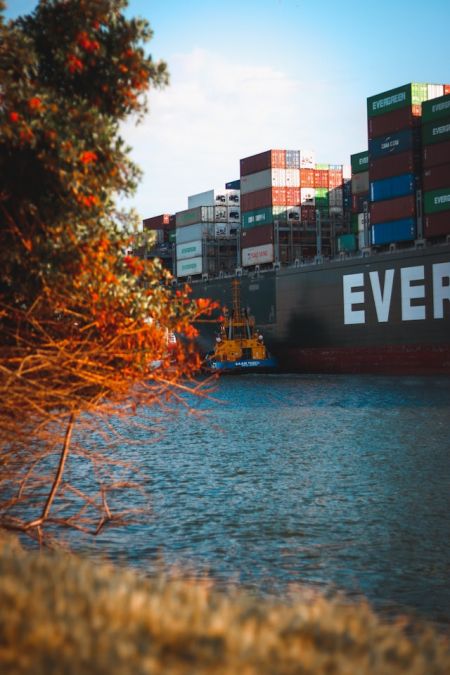The delivery of cargo without the production of the corresponding bill of lading is neither a new nor an ignored problem. In French law today, it is well known that this delivery constitutes a fault, whether the bill of lading in question is a bearer bill, an order bill, or a straight bill of lading.
This fault has often been considered inevitable in situations where the bill of lading cannot be produced through no fault of the consignee. For example, in short-distance voyages, cargo may arrive faster than the bill of lading. Delays may arise due to the time needed to process documentary credit, bank procedures, or postal delays—including strikes or general inefficiency.
 Nevertheless, it is common for cargo to be delivered without production of the bill of lading, although this is required by Decree n°66-1078 of 31 December 1966 relating to contracts of maritime charter and transportation. Article 50 states: “The handing over of the bill of lading to the carrier or his representative establishes delivery, unless proved otherwise.”
Nevertheless, it is common for cargo to be delivered without production of the bill of lading, although this is required by Decree n°66-1078 of 31 December 1966 relating to contracts of maritime charter and transportation. Article 50 states: “The handing over of the bill of lading to the carrier or his representative establishes delivery, unless proved otherwise.”
Such delivery constitutes a fault that is not subject to the carrier’s limitation of liability, since this limitation only covers loss or damage to the goods. In practice, delivery without the bill of lading is often accompanied by a letter of indemnity in favor of the carrier. This letter commits the consignee to cover any claim from the actual consignee and is often issued by a bank for a fixed amount—which may not match the true value of the goods.
The use of letters of indemnity is legally questionable yet still widespread. The lack of better alternatives leads to its continued use, especially for perishable goods or in the case of demurrage. One might ask why such an irregular practice is tolerated. If it is inevitable, why is it not formally acknowledged by jurisprudence or legislation?
Delivery in exchange for a letter of indemnity, without production of the bill of lading, has become common. As one commentator noted, “The same Master who, ten years ago, was stigmatized for proceeding with delivery to an unqualified third party now finds himself liable for refusing it—once a letter of indemnity has been presented.”
Jurisprudence appears to tolerate this. Some legal scholars even suggest that courts have made bill of lading production voluntary in cases where a letter of indemnity is presented. However, this may go too far. When a shipper accepts delivery based on a letter of indemnity, any action against the carrier for delivery without either the bill or the indemnity is subject to the one-year time bar under Transportation Law, as confirmed by the Commercial Chamber of the French Supreme Court.
Delivery without the bill of lading or a letter of indemnity is clearly irregular and constitutes a fault.
However, letters of indemnity pose their own problems. As the carrier’s limitation of liability does not apply to irregular delivery, he remains liable for all direct and indirect consequences of the fault. The indemnity amount may be hard to calculate and may not reflect the value of the goods upon arrival. Banks may also be reluctant to issue open-ended guarantees, requiring an estimate of the potential damage.
The time bar for actions relating to delivery without a bill of lading has sparked debate. Is it subject to general law or the one-year limit under Article L5422-18 of the Transport Code (formerly Article 32 of Law n°66-420 of 16 June 1966)? This article states: “The suit brought against the carrier owing to loss or damage shall be prescribed after one year.”
The Supreme Court ruled on 22 May 2007 that the one-year time bar applies. In that case, the shipper sued a carrier who had delivered the cargo without requiring the agreed-upon letter of indemnity. Since the contract allowed delivery without a bill of lading only if a letter of indemnity was issued—and it wasn’t—the court still dismissed the case as time-barred under Article L5422-18. This established that delivery faults like this are bound by the one-year time bar.
The requirement of a letter of indemnity is not a separate obligation but forms part of the contract of carriage. Consequently, any related action falls within the carriage contract’s statute of limitations. Claims must be brought promptly—though commercial relationships may complicate this.
Not all maritime countries accept delivery without a bill of lading. On 16 February, the Chinese Supreme Court issued a judicial interpretation requiring the carrier to deliver goods only upon production of the original bill of lading—regardless of its type. Failure to comply results in the carrier being held liable to the holder of the bill, and no limitation of liability applies. Chinese insurance also does not cover delivery without a bill, even when accompanied by a letter of indemnity. Other countries may follow suit.
 In Air Transport Law, which often influences Maritime Law, the French Supreme Court recently ruled against a clause allowing delivery to a party other than the consignee named in the air waybill. Under Article 23 of the Warsaw Convention, such clauses are void as they seek to limit carrier liability. While not directly relevant to maritime delivery without a bill of lading, this precedent is worth noting. It reflects a broader reluctance to allow deviations from strict documentary delivery obligations.
In Air Transport Law, which often influences Maritime Law, the French Supreme Court recently ruled against a clause allowing delivery to a party other than the consignee named in the air waybill. Under Article 23 of the Warsaw Convention, such clauses are void as they seek to limit carrier liability. While not directly relevant to maritime delivery without a bill of lading, this precedent is worth noting. It reflects a broader reluctance to allow deviations from strict documentary delivery obligations.
The Rotterdam Rules attempt to address delivery without a bill of lading. They allow carriers to limit liability for breaches (not just loss or damage). Article 59 supports this shift. These Rules also make provisions for delivery without a “transport document” (a term used in place of “bill of lading”).
Under Article 46, for negotiable documents, and Article 45 for non-negotiable ones, a carrier may deliver cargo without presenting the document if the shipper instructs it. According to Article 47, the carrier may request a guarantee—resembling a letter of indemnity—before doing so. Thus, the Rotterdam Rules appear to acknowledge this widespread yet unofficial practice.
Although delivery based on letters of indemnity is common, it is not universally accepted and remains legally fragile. It would be preferable to deliver cargo only upon production of the bill of lading, as required by law. To avoid legal and commercial risks, it is strongly recommended to consult a qualified advisor. A lawyer specialized in Maritime and Business Law is an indispensable resource. Before making decisions regarding your contract of carriage, expert legal advice should be sought.
